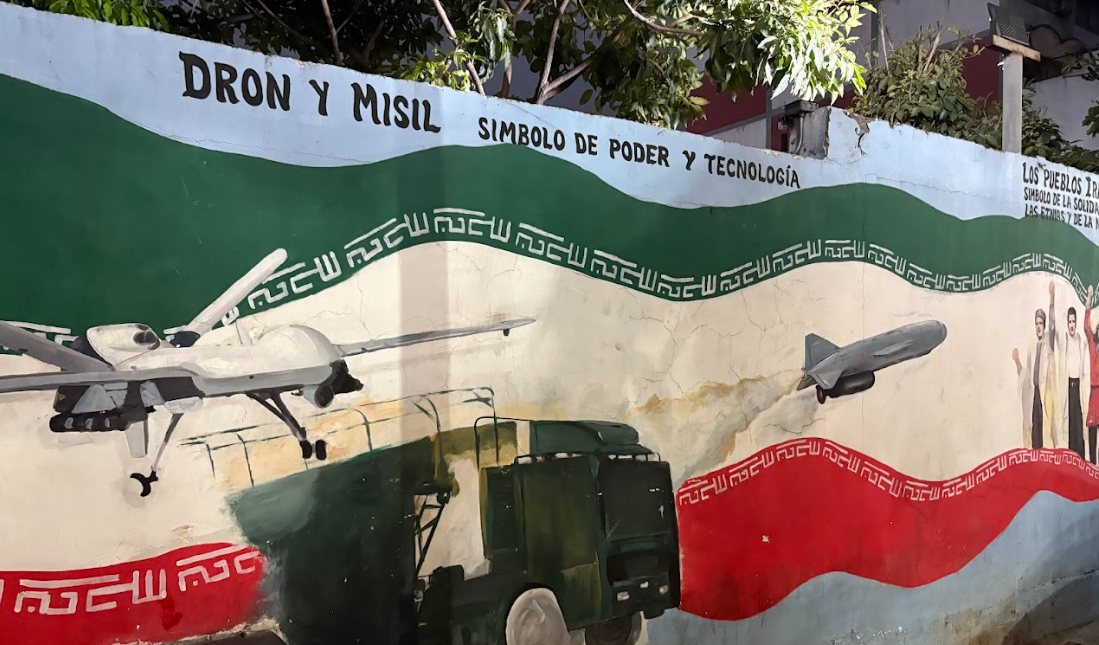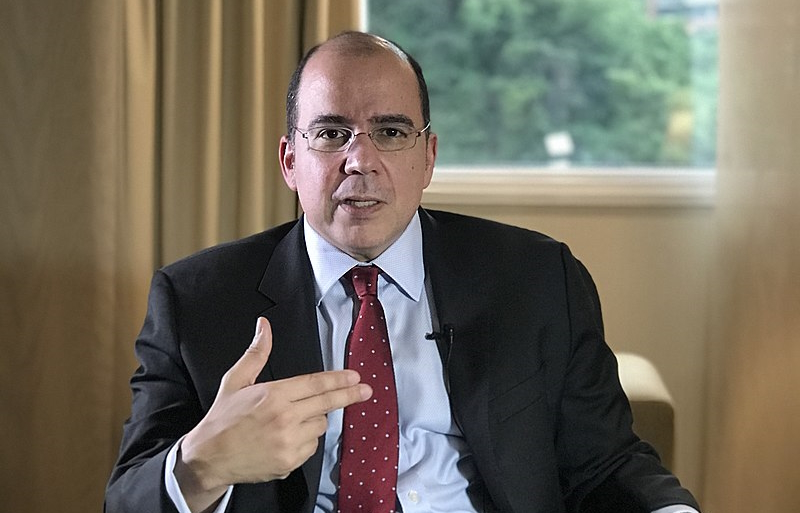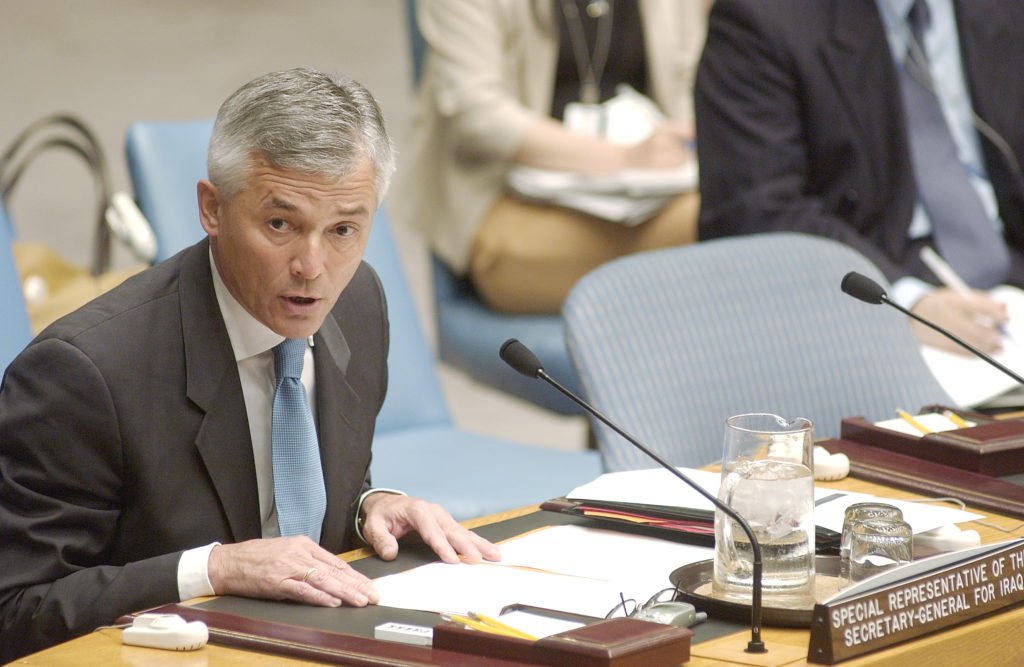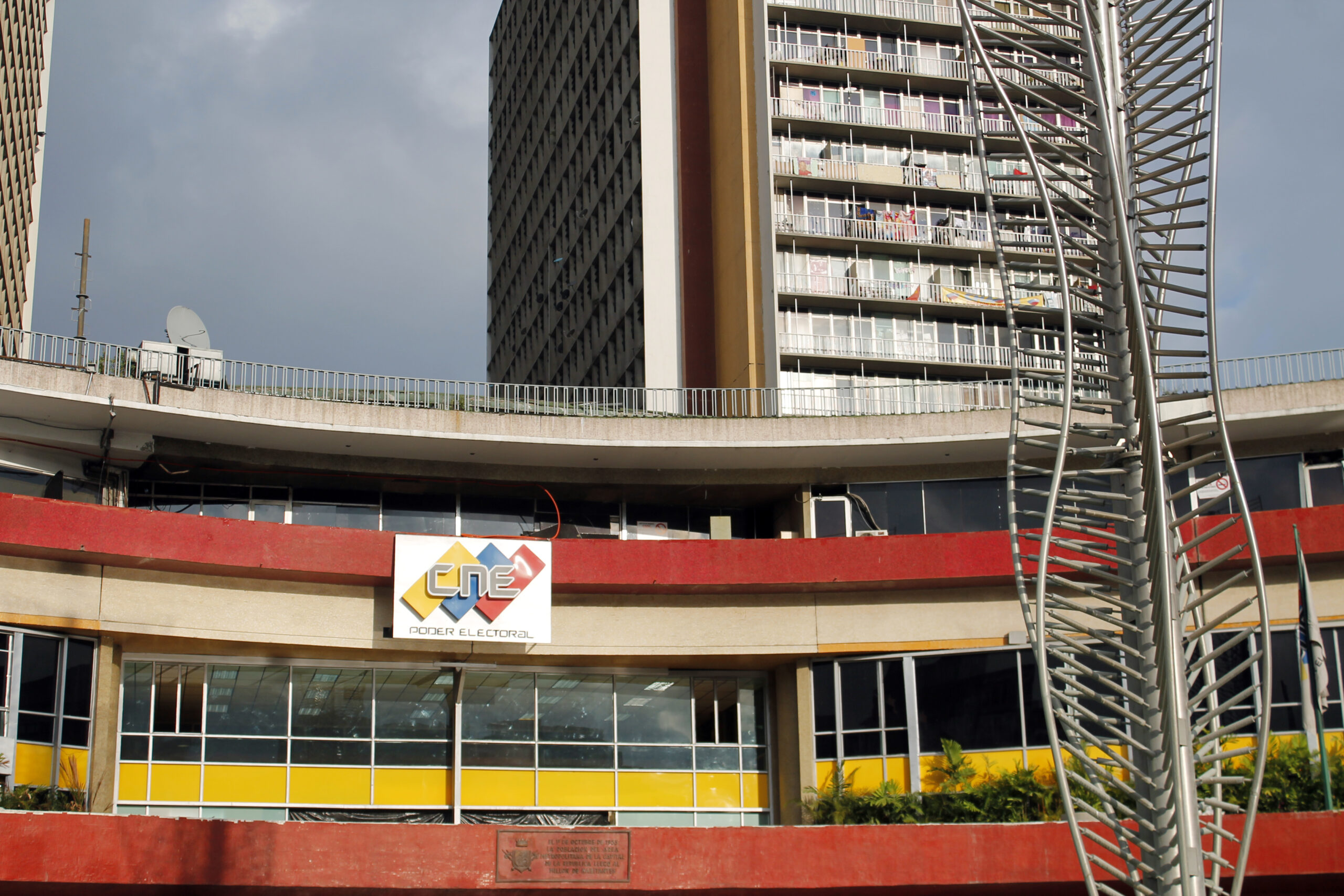Antonio Ecarri Angola, leader of the Alianza del Lápiz, in the library of the Fundación Casa Arturo Uslar Pietri. Photo: Guacamaya.
Guacamaya, April 20, 2025. Antonio Ecarri is the leader of the Alianza del Lápiz, an independent opposition party. He was a presidential candidate in the July 28 elections, running outside the platform that supported Edmundo González. Amid the controversy over the results, Ecarri filed a legal challenge questioning the actions of the National Electoral Council (CNE).
Now, with the regional and legislative elections of May 25 approaching, Ecarri had considered running for governor of Aragua. Ultimately, he decided against it, though the Lápiz party does have candidates in Aragua, as well as in Miranda, Carabobo, Táchira, Falcón, Yaracuy, and Sucre. They also support incumbent opposition governors and other candidates in various regions.
We asked him about the elections—those of July 28, 2024, and the upcoming ones on May 25, 2025—particularly what happened with Aragua. We also discussed why they are running as an independent force, separate from the main opposition alliance.
Q: Let’s start with July 28. You ran in the presidential election and later filed a challenge in the Supreme Court against the CNE. What were you aiming for?
A: Yes, I went to the Supreme Court. I didn’t sign any recognition of the results, only a notification of the start of legal proceedings. When I exercised my legal rights, I left my testimony in writing. I didn’t do it out of ambition or demagoguery; I did it for justice. Those weren’t my votes, but I was firmly convinced of defending democratic principles. I was the first to raise objections to the Electoral Chamber’s performance. It was a topsy-turvy world: the one who should have challenged the results didn’t, and the one who wasn’t obligated to do so did. What followed was an inexplicable judicial mess.
So, I acted. I did so openly and with conviction. It’s all there, in writing. I also appealed to the Constitutional Chamber, challenging the decisions of the other Chamber and the CNE itself. I wasn’t heard.
That stance angered the Attorney General, with whom I had a heated argument that nearly turned physical. I confess, leaving there, I felt alone. Shortly after, I discovered that Edmundo González had also written to the same Attorney General and then, in a panic, ended up recognizing the results and fleeing the country for Spain. I was stunned.
Those who wanted to hide this history launched a smear campaign against me on social media to sell the image of a prefabricated hero abroad. Venezuela needs a dose of truth. The country remains in shock. On July 28, instead of resolving the democratic crisis, it was revived and worsened.
Q: Now, the Lápiz party is preparing for the May 25 elections. And it seems you’ll go it alone. You’re fielding four gubernatorial candidates, and you’ll lead the list for the National Assembly. However, there was talk that you would run for governor of Aragua, with ambitions to launch an international campaign to reform the state’s image—something we’d discussed at Guacamaya. Why didn’t you run?
A: The mayors of Aragua proposed that I lead a regional, national, and international campaign to clean up the image of Aragua’s people. For years, the crisis and collapse of Venezuela’s welfare state have fueled a deep wave of violence. Aragua, once one of the country’s most dynamic industrial zones with a strong working class, became the rust belt of the central region. That decline brought unemployment and an unprecedented social crisis, giving rise to fearsome criminal gangs.
Aragua became what Antioquia, particularly Medellín, was in Colombia during the 1980s. However, the Tren de Aragua, more than an organized gang, has dissolved into an informal franchise adopted by criminals worldwide. The reality is very different from the narrative that’s been imposed. I doubt U.S. intelligence and security agencies are unaware of this.
Gang members are a pitiful minority. The vast majority of Aragua’s people are hardworking, entrepreneurial, deeply educated, and honest. The social crisis forced many mothers in Aragua to say goodbye to their children and grandchildren. Today, besides sadness, they feel panic: their children’s passports not only say they’re Venezuelan but that they were born in Aragua—and if they have a tattoo, they’re immediately labeled as part of an international terrorist organization.
I accepted that campaign proposal with responsibility and conviction. But being governor is another matter. It required broad national consensus, which wasn’t possible to build. We were sabotaged from multiple fronts, not just by the government.
Q: Last week, while parties were submitting their candidate lists, the Comptroller’s Office disqualified your father, Antonio Ecarri Bolívar, without clear explanation. What happened there?
A: Well, that was part of the scheme to sabotage my candidacy. That’s why I concluded the right conditions didn’t exist. So, I decided to propose a young man from Aragua—both a protagonist and victim of this stigmatization campaign—to take up the candidacy. He was born in the most excluded neighborhoods of the region and knows its reality firsthand. I’ll stand by him.
Gonzalo Díaz will be the protagonist. I firmly believe God knows what He’s doing, and now the campaign has an unexpected element: a fresh, independent figure, unburdened by the past, who understands his environment deeply and can generate a real electoral phenomenon in the country’s center—all without resorting to revenge or fearmongering.
Q: Why was your father disqualified? There’s a new accusation over his role as ambassador for Juan Guaidó’s interim government. But other politicians who were part of that government are running—several are on the joint list of Un Nuevo Tiempo and Única (Henrique Capriles’ party). Why now?
A: It’s inexplicable. Even more troubling is that some of those attacking him now voted for his appointment back then. Certain sectors clearly want us out of the game. We make many uncomfortable: from those trying to revive the interim government or clamoring for military intervention to government supporters clumsily disguised as opposition who also seek to neutralize us.
The political center in Venezuela is being built with new actors and new strength. That inevitably comes at a cost. We’re attacked from all sides precisely because we represent something different.
“I’ll be up against Jorge Rodríguez. It’d be an interesting challenge to debate him and other national list leaders face-to-face. Democracy begins with the campaign itself, and debates are fundamental.”
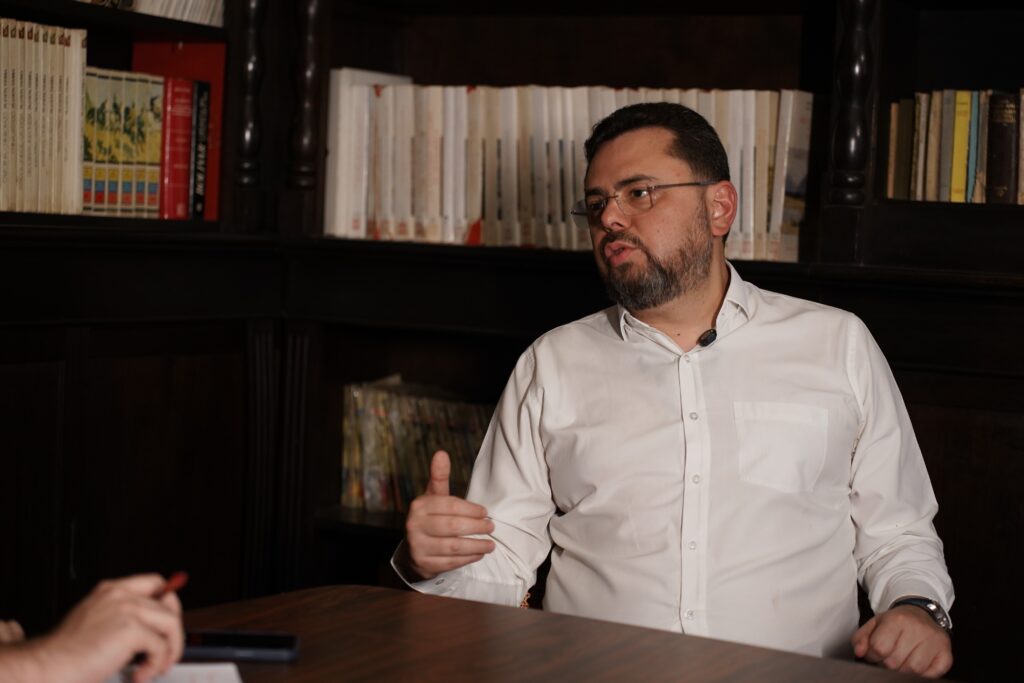
Q: Why is your party running alone instead of joining other initiatives? Turnout is expected to be very low on May 25, so one might think the sensible thing would be a united opposition front.
A: The Lápiz was born as a truly independent movement. We achieved significant results in the 2021 elections, especially in working-class neighborhoods in Caracas and Aragua. From the start, the Lápiz positioned itself as an alternative to depolarize the country, not deepen the conflict.
We’re not a “third way.” We’re a firm option focused on restoring the dignity of the Venezuelan people, recognizing others, and building a negotiated solution without revenge. We’re deeply proud of the national debut we represent. True, polarization swallowed our votes, but according to all polls, after María Corina Machado’s electoral phenomenon, we were the second national option. It was a major first step.
We warned all along what would happen. The problem is that the solution to Venezuela’s crisis can’t be “with just anyone.” The way out must involve plurality and depolarization. The government, with its clumsiness and mismanagement, tried to polarize with that sector, and the plan backfired. That’s why I insist: far from resolving the crisis, it worsened it.
The Lápiz doesn’t join just for the sake of joining. The old methods of forced, fictitious unity haven’t worked and won’t work. The old actors lack solidity and clarity in diagnosing the deep illness of Venezuela’s collapsed petro-rentier state. They also lack real knowledge of the Venezuelan people.
That’s why we’re running as independents against the poles of conflict and their unfortunate extensions. Still, we’re pragmatic. We recognize regional realities that deserve our support, which is why we back the reelection of current opposition governors. We also have support from parties in other alliances in Táchira, where we’re promoting our candidate María Teresa Cantor.
Eric Ondarroa, our secretary-general, achieved phenomenal poll growth in Miranda in just weeks, displacing traditional politicians. I firmly believe his strength and integrity will exemplify the change already brewing in the country. Capriles is making a mistake by not supporting him, clinging to a bygone era.
Jorge Ignacio Barragán will face Nicolás Maduro Guerra in the capital. It’ll be a campaign of national and international interest. Jorge is a young leader who’ll challenge the young son of power in its own seat—but he has the backing of brave, committed community leaders.
Mayerling Occhino, a current Caracas councilwoman with deep knowledge of the city, will face Cilia Flores de Maduro on the national deputy list. This will get interesting. The government is used to dealing with the old opposition, not independent forces—much less young people unburdened by the old national conflict’s guilt and compromises.
I’ll be up against Jorge Rodríguez. It’d be an interesting challenge to debate him and other national list leaders face-to-face. Democracy begins with the campaign itself, and debates are fundamental. Henrique Capriles and Bernabé Gutiérrez should also participate.
Q: Are there still talks with other parties?
A: There always should be. But I believe maintaining plurality lowers tensions and allows different forces to position themselves on Venezuela’s board to unstick this painful, worn-out game. This country is very plural, but repolarization was an accident in an evolutionary process that will mark the coming years. Today, we face a new Venezuelan who demands new faces, new ideas, and a path to a new era.
“Demobilizing Venezuelans by making them “wait” for an alien invasion proves the old opposition lacks the strategy and tactics for real change.“
Q: Many people won’t vote in these elections. Turnout could be as low as 25%. But your party is running. What’s the point of voting this time? What’s your project?
A: We know we’re sowing in hard soil, but the seed will sprout. We firmly believe a new political project, born from the most marginalized sectors in the country’s center, can refresh and transform the national scene. We also have a clear national project centered on education as the foundation of development.
To rescue Venezuela from its catastrophe amid 21st-century challenges, we must envision a new concept of the state: a de-presidentialized state. We have a serious design problem. The president, an anachronistic institution concentrating all power since 1931, is unacceptable. Venezuela isn’t about changing names—it’s about redesigning the state for a true democratic system, with deep reforms guaranteeing not just basic rights but new digital rights to compete in an increasingly complex world.
We propose a state capable of correcting market failures while open to national and foreign private investment, which brought great dividends in the past. Reducing fiscal burdens, cutting bureaucracy, fighting corruption, and leveraging energy resources—especially minerals—through private-sector alliances could relaunch the economy relatively quickly.
But to achieve this, we must overcome the anachronistic mental blocks persisting in Miraflores. Without surrendering sovereignty, Venezuela can become a global energy and talent hub instead of the decomposed social burden it is today.
We also combat abstention. It’s a colossal mistake. Demobilizing Venezuelans by making them “wait” for an alien invasion proves the old opposition lacks the strategy and tactics for real change.
Q: In the July 28 presidential election, you also ran alone. Polls then showed nearly all opposition votes going to Edmundo González. Why did you run?
A: To unstick the political game, we went far beyond electoral fashion. We knew exactly what would happen and warned the country repeatedly. Winning was hard; getting recognition, harder; being proclaimed, even tougher; and having Maduro place the presidential sash on you, nearly impossible. But the hardest part would’ve been governing after this economic and social catastrophe.
González’s candidacy was an adventure born from the old conflict some sought to revive, along with score-settling in the old opposition—a total improvisation, and promoting it was deeply irresponsible. Now, we believe our message is a call to national conscience. It’s a seed we’ve planted.
Majorities begin as minorities with deep historical convictions, aware of their time. We’re not a circumstantial movement. We were born to make history.
“Minister Cabello watches us closely, hence the attacks. We’re not the ideal opposition they always seek.”
Q: On his show Con El Mazo Dando, Interior Minister Diosdado Cabello said the Lápiz would be María Corina Machado’s “Trojan horse.” What’s that about?
A: The PSUV knows we’re a growing movement with credibility and social roots. Many who supported María Corina now view our proposals with sympathy. That unsettles them. Even more concerning for them is that disillusioned Chavistas are joining our ranks.
Minister Cabello watches us closely, hence the attacks. We’re not the ideal opposition they always seek.
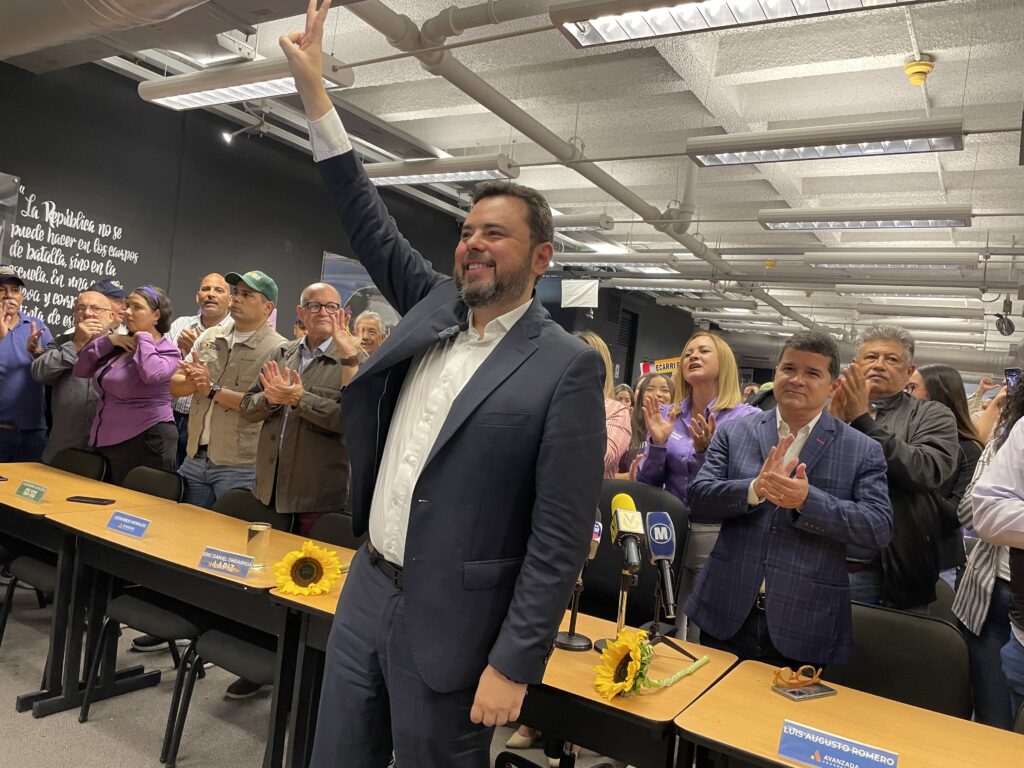
Q: It seems we’re facing tougher U.S. sanctions, including secondary tariffs. What is President Donald Trump thinking? What can we expect if maximum pressure returns?
A: Frankly, I struggle to understand the logic of some in the Trump administration. On one hand, they reject and persecute migrants; on the other, they push sanctions that economically strangle countries like Venezuela, creating the very conditions that drive millions to leave. Sanctions have, in practice, become migrant factories.
Historically, U.S. investment was key to democratic development in Latin America. Without investment, opportunities, and amid structural poverty, a stable democracy is impossible. The “maximum pressure” rhetoric has proven ineffective and counterproductive—it won’t bring democratic transition but will strengthen authoritarian tendencies in power.
Venezuela’s democracy didn’t emerge from conflict or external imposition. It was born and consolidated in the 20th century through oil development, international investment, and economic prosperity. After over 100 years of civil wars and dictatorships, prosperity built one of the continent’s strongest democracies. But we took a wrong turn: excessive statization collapsed the welfare state—and with it, our democracy.
Today, we have a new chance. Opening to private investment—especially from the U.S.—could be the first real breath to rebuild a solid, inclusive democratic system.
U.S. investment in Venezuela isn’t just strategic—it’s the real way out of the crisis. Sanctions only deepen ruin, creating fertile ground for crime and forced migration. It’s time to rethink Venezuela policy with common sense, strategic interest, and democratic ethics.
Q: How does political change happen in Venezuela?
A: The solution requires a political and economic pact. This means progressively lifting sanctions alongside firm transparency agreements for public resources. We must depolarize politics by incorporating new actors capable of dialogue—firmly, with mutual respect, and clear commitment to national sovereignty.
Granting new economic licenses under strict open-government rules, with special funds for social investment and basic services, could be invaluable for stabilization.
This must come with respect, tolerance, and plurality. Reconstruction must be collective—we all need each other. Venezuela can’t turn the page without reading it first. But we must move forward—with memory, but with purpose.
I confess, I’m an incurable optimist. And I believe President Trump has the strategic intelligence to understand this thesis and the historic moment it represents.
Hope, as Pope John Paul II said, isn’t the conviction that something will turn out well, but the certainty that something makes sense, no matter what happens.


